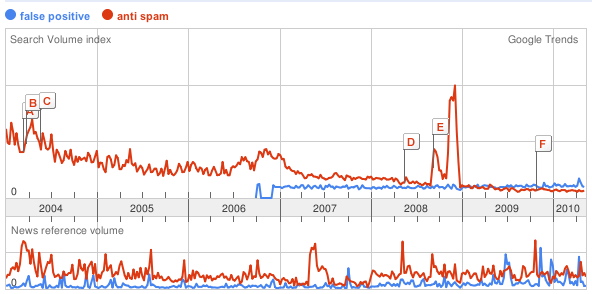According to Computerworld, James Gordon of Omni Innovations in Seattle WA has been ordered by a federal court to pay $111,000 legal fees of the defendant Virtumondo Inc of Overland Park KS.
It seems the court requires plaintiffs who sue under the CAN-SPAM of 2003 to have suffered some deliterious impact, not unlike the costs of ISPs – storage, antispam software etc – to dealing with spam. They must have been adversely affected to have 'standing to sue.'
So, according to the court, receiving an email is not a crime. Receiving an irrelevant email is not a crime. Receiving an anonymous email is not a crime. Receiving an inappropriate email is not a crime. Receiving a bulk email is not a crime. Forcing ISPs to transport a high volume of these kinds of messages is, and is the basis the court uses for determining if a plaintiff has standing.
That's why Microsoft, AOL, Earthlink and others must lead the legal charge against spammers. The federal statute does not anticipate private citizens from doing so.
The article goes on to report that most ISPs can't afford to analyze 90% of their incoming messages to determine the appropriate legal courses of actions.
Perhaps, ISPs need a legal arm of their trade association such that they be able to legally pool their experiences and initiate lawsuits from that entity, sharing the costs and benefits for the industry. The model of pooling experiences is not unlike the recording industry's approach to illegal song sharing. See Recording Industry Association of America.
Most interesting is the RIAA's anti-piracy efforts.









